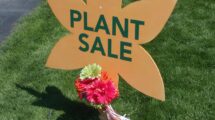
If you’re thinking about taking up gardening as a hobby, you’re in for a treat. Gardening is a great way to get outside and enjoy the fresh air, and it’s also a great way to connect with nature. Not to mention, gardening is a great way to improve your overall health! In this blog post, we will discuss six helpful resources that you need for taking up gardening as a hobby. We’ll also provide some tips on how to get started!
1. Garden sheds for tools
No matter what kind of gardening you want to do, you’re going to need some tools. And where are you going to store all of those tools? In a garden shed, of course! Garden sheds come in all shapes and sizes, so you can find one that fits your needs perfectly. Plus, having a designated space for your gardening tools will help keep your yard tidy and organized. If you’re not sure where to start when it comes to choosing a garden shed, you can visit https://www.tiptopyards.com.au/product-category/garden-sheds/ and browse through their selection. They have a wide variety of garden sheds to choose from, so you’re sure to find one that’s perfect for you. You can also check out your local hardware store or garden center for garden shed options.
2. Watering cans and hoses
Another gardening essential is a watering can or hose. After all, your plants are going to need water to thrive! Watering cans come in a variety of sizes and styles, so you can choose one that’s perfect for your needs. If you have a large garden, you may want to invest in a hose. Hoses come in different lengths, so you can find one that’s long enough to reach all of your plants. You can also find hoses with different nozzle attachments, so you can easily water your plants without getting wet yourself! Watering your plants is important, but it’s also important to make sure that you’re not overwatering them. Overwatering can lead to root rot, which can kill your plants. To avoid overwatering, make sure to check the soil before watering.
3. Fertilizer
Fertilizer is another important gardening resource. Fertilizer helps your plants grow strong and healthy. There are a variety of different fertilizers to choose from, so you can find one that’s perfect for your needs. You can also find organic fertilizer options if you’re looking for a more natural option. When applying fertilizer, make sure to follow the directions on the package. Applying too much fertilizer can be harmful to your plants. Sometimes, you may also need to add amendments to your soil. Amendments help improve the quality of your soil and make it more conducive to plant growth. You can find a variety of different amendments at your local garden center or hardware store.
4. Garden gloves
Garden gloves are another essential gardening resource. Garden gloves will protect your hands from sharp tools and prickly plants. They’ll also keep your hands clean while you’re working in the garden. When choosing garden gloves, it’s important to find a pair that fits well. You don’t want them to be too tight or too loose. You should also look for gloves that are comfortable and breathable. Gardening can be tough on your hands, so it’s important to choose a pair of gloves that will offer some protection. There are a variety of different garden gloves to choose from, so you can find a pair that’s perfect for you.
5. Garden tools
Of course, you’re going to need some garden tools! There are a variety of different garden tools to choose from, so you can find the ones that are perfect for your needs. You’ll need at least a few basic tools, such as a shovel, rake, hoe, and trowel. If you want to get more advanced, you can also invest in pruning shears, loppers, and a wheelbarrow. Garden tool kits are also available if you want to get all of the essentials in one package. When choosing garden tools, it’s important to find ones that are made from high-quality materials. You don’t want your tools to break after just a few uses!
6. Garden pests and weed control
Last but not least, you’re going to need to deal with garden pests and weeds. Garden pests can damage your plants and make them sick. To keep garden pests at bay, you can use insecticidal soap, traps, or tanglefoot. You can also plant certain herbs and flowers that will help deter garden pests. When it comes to weed control, you have a few different options. You can pull the weeds by hand, use a hoe or trowel to dig them up or spray them with herbicide. Whichever method you choose, just make sure that you’re consistent with it!

These are just a few of the gardening resources that you’ll need to get started. With these resources, you’ll be well on your way to becoming a successful gardener! So, what are you waiting for? Get out there and start gardening! Happy planting!






